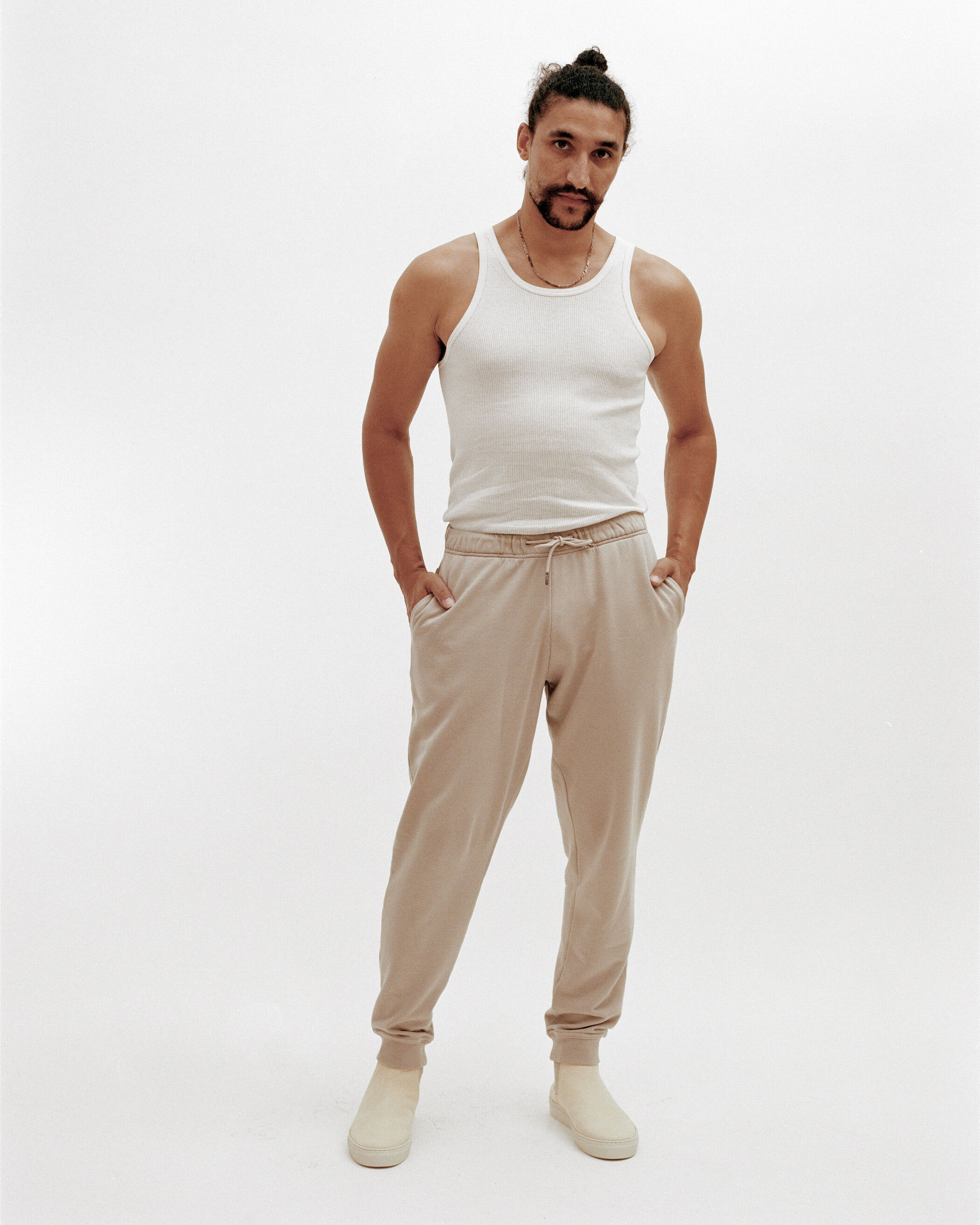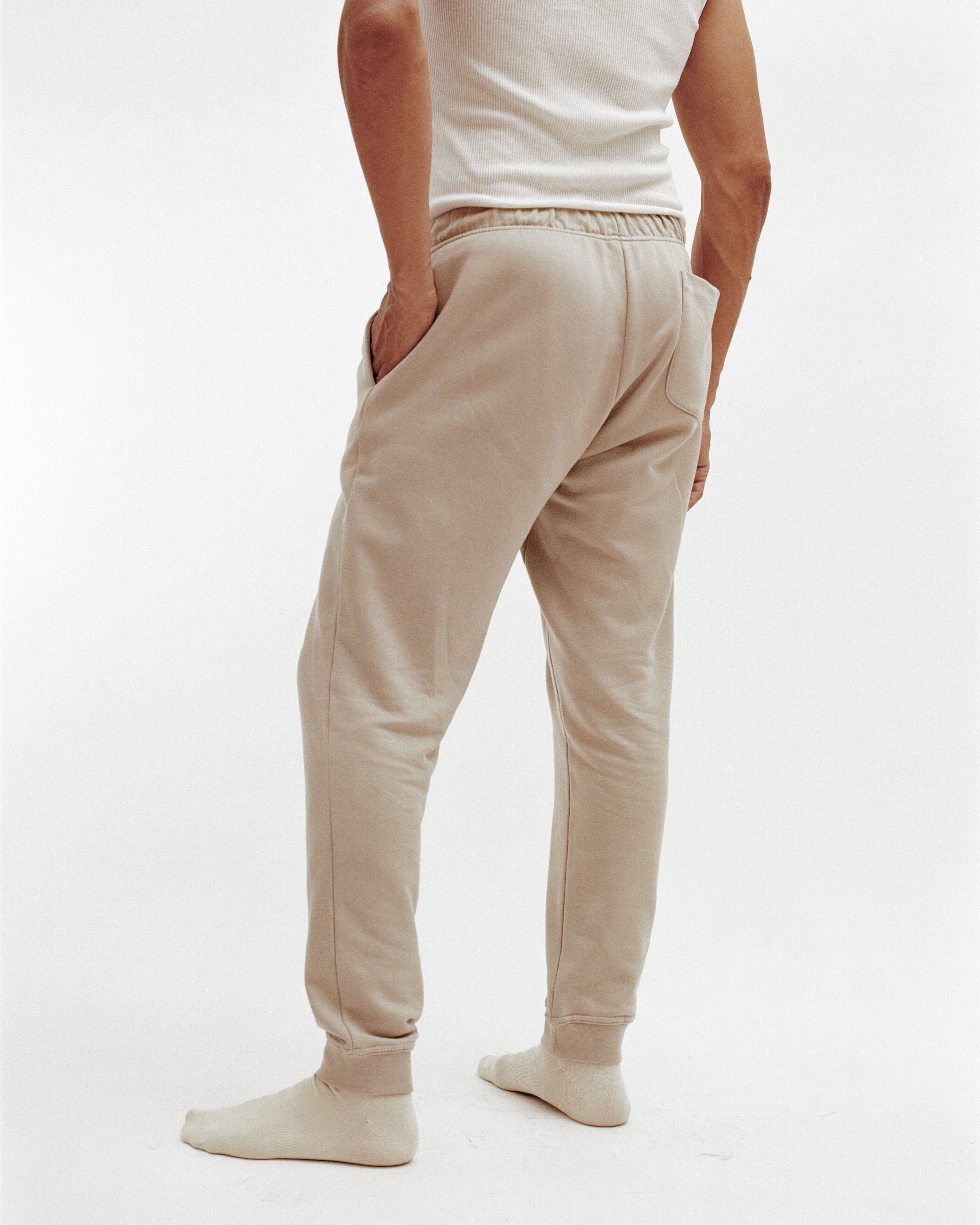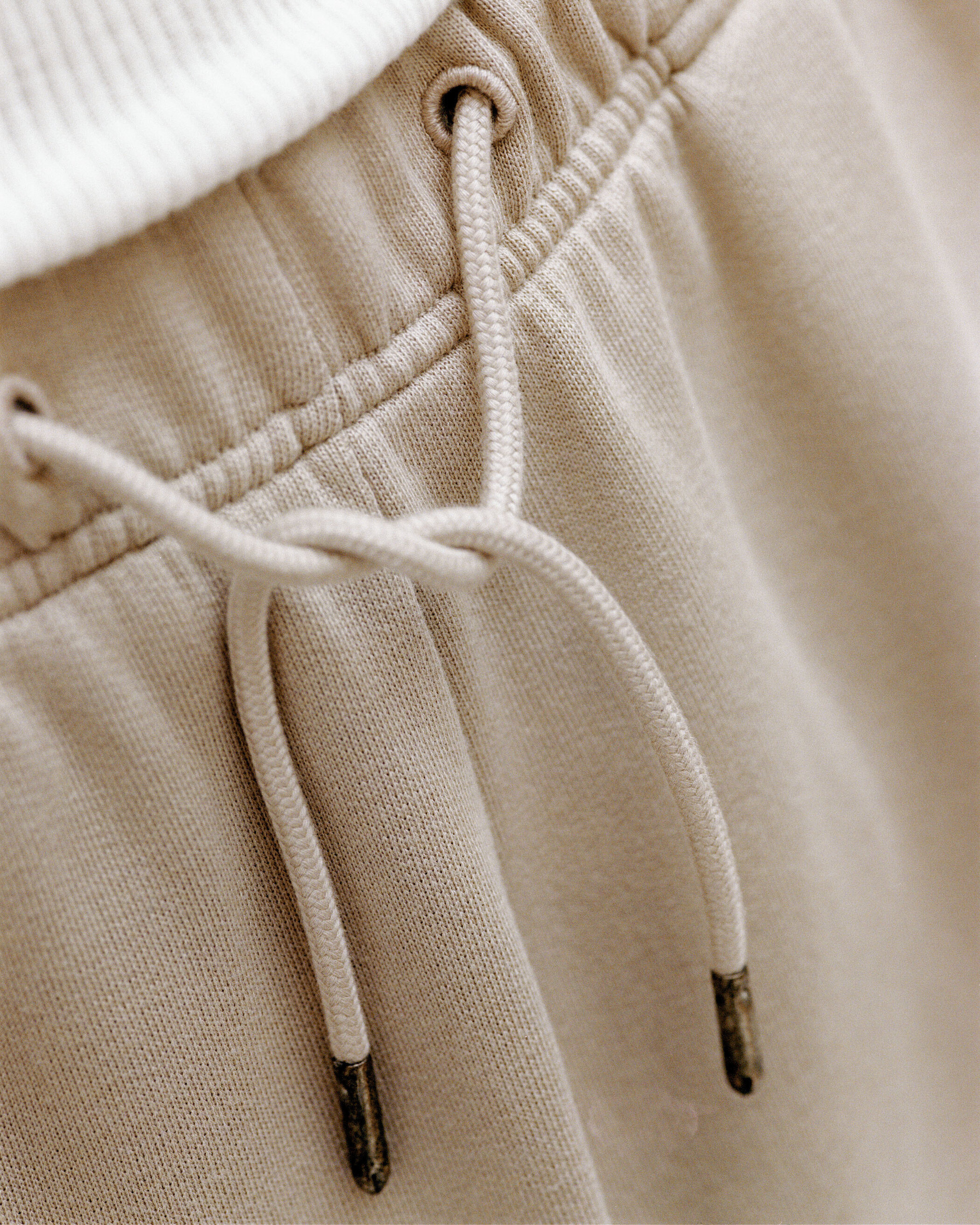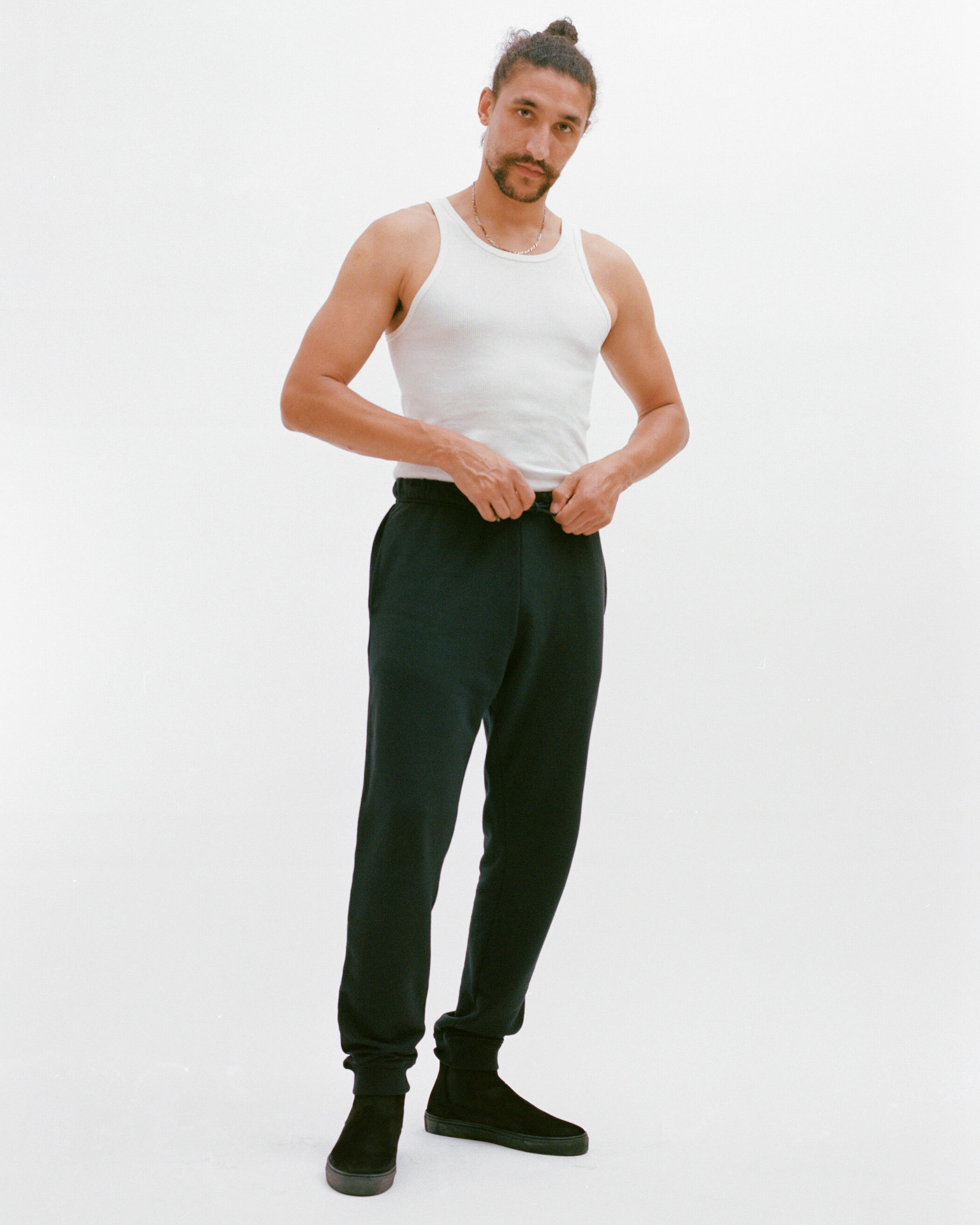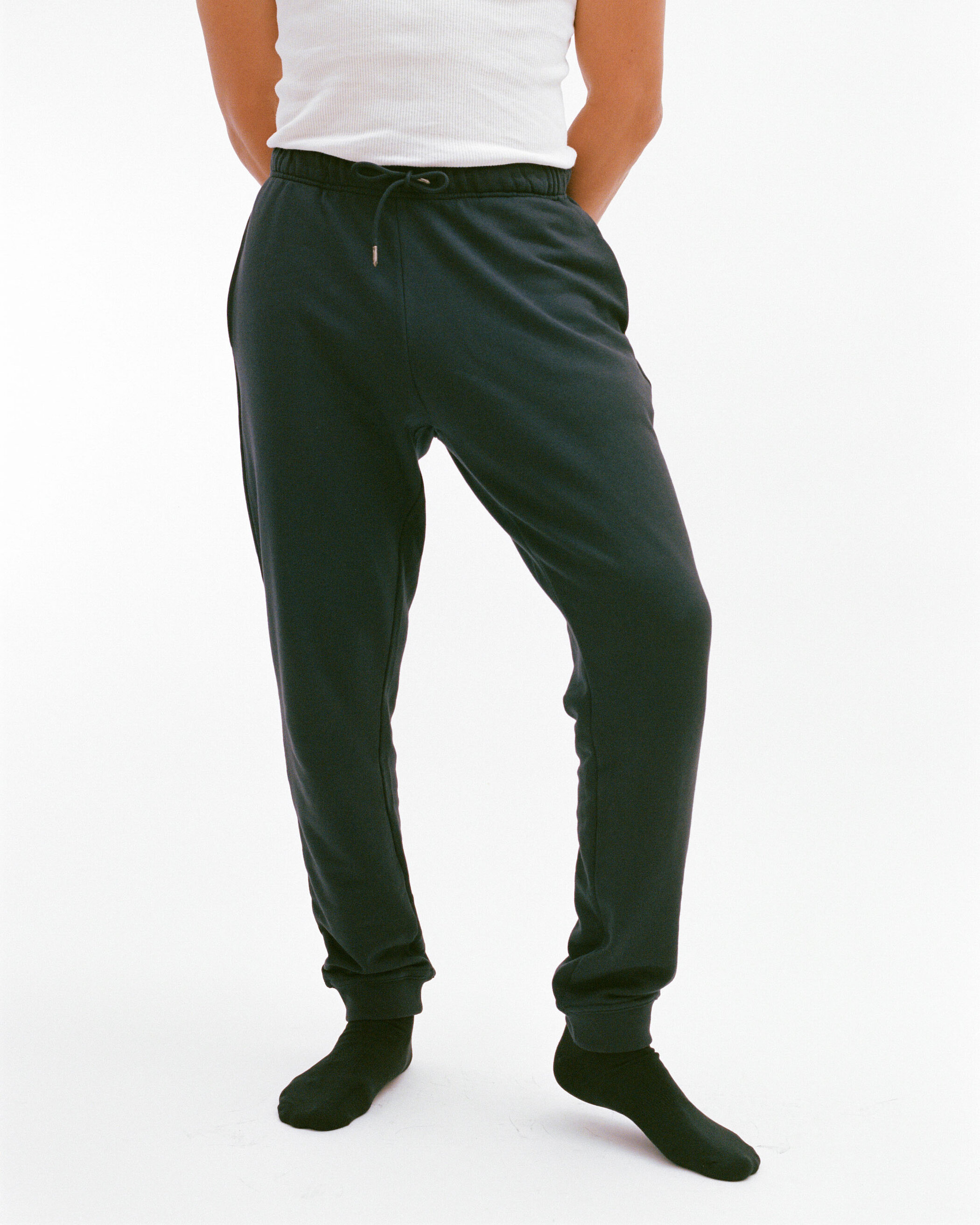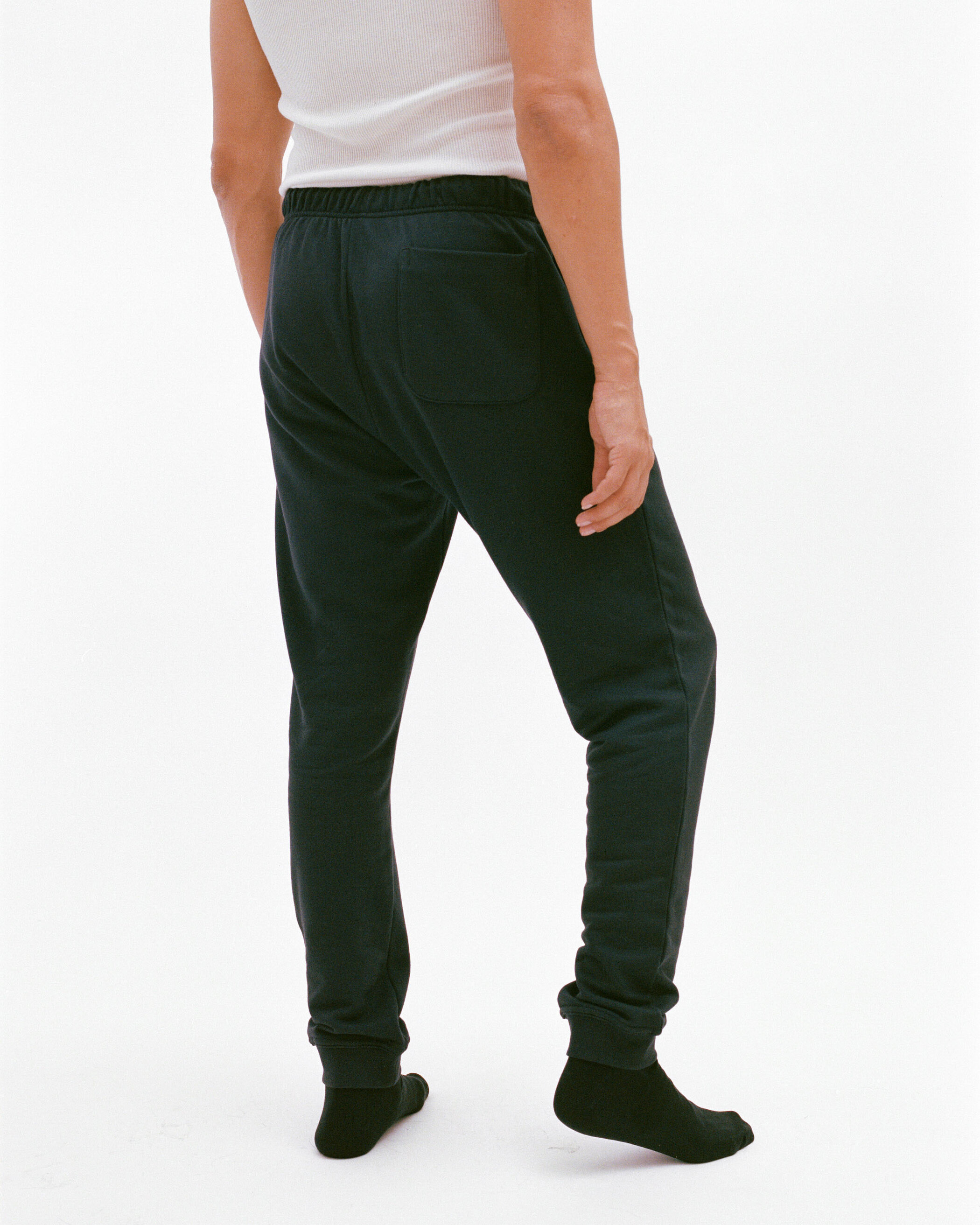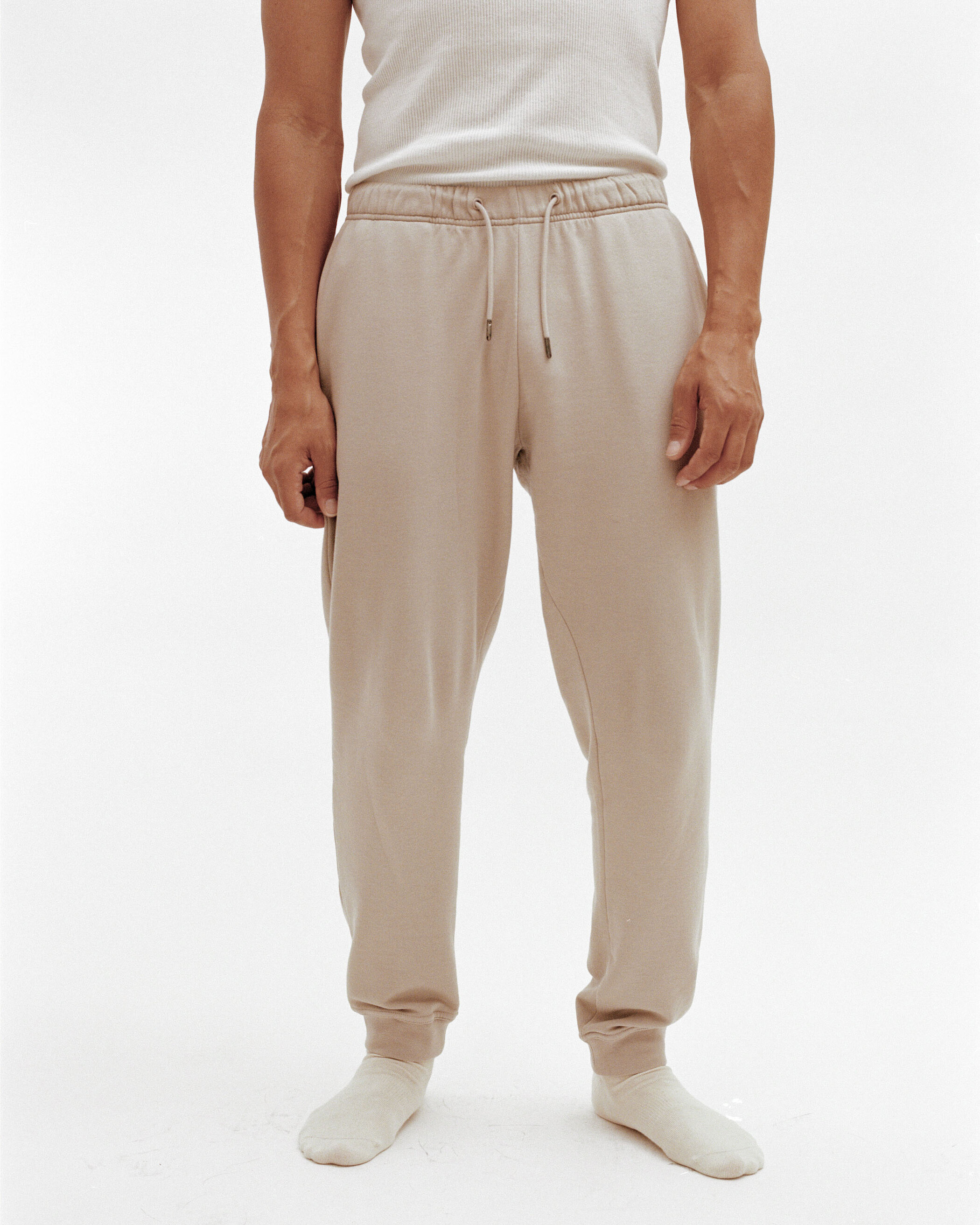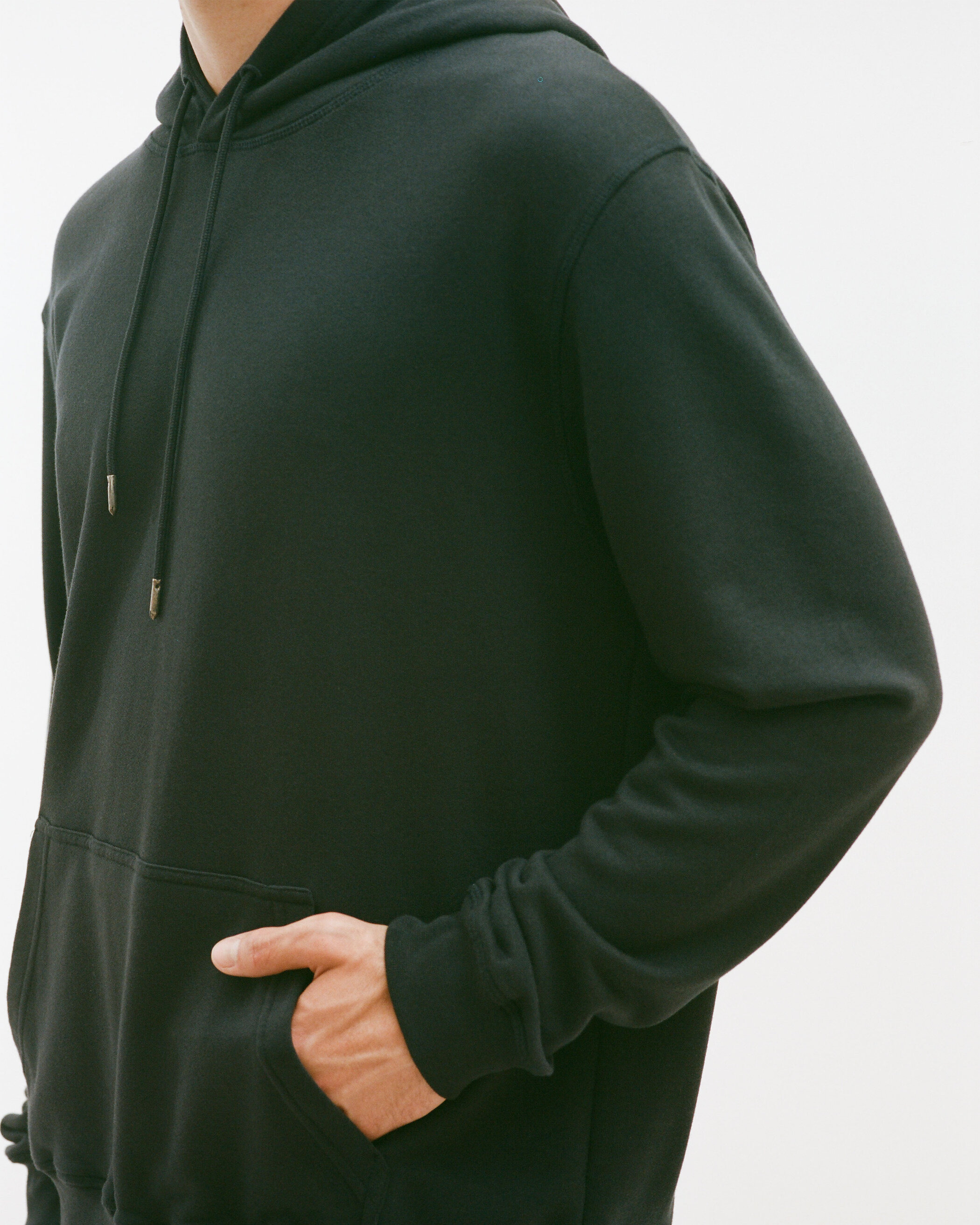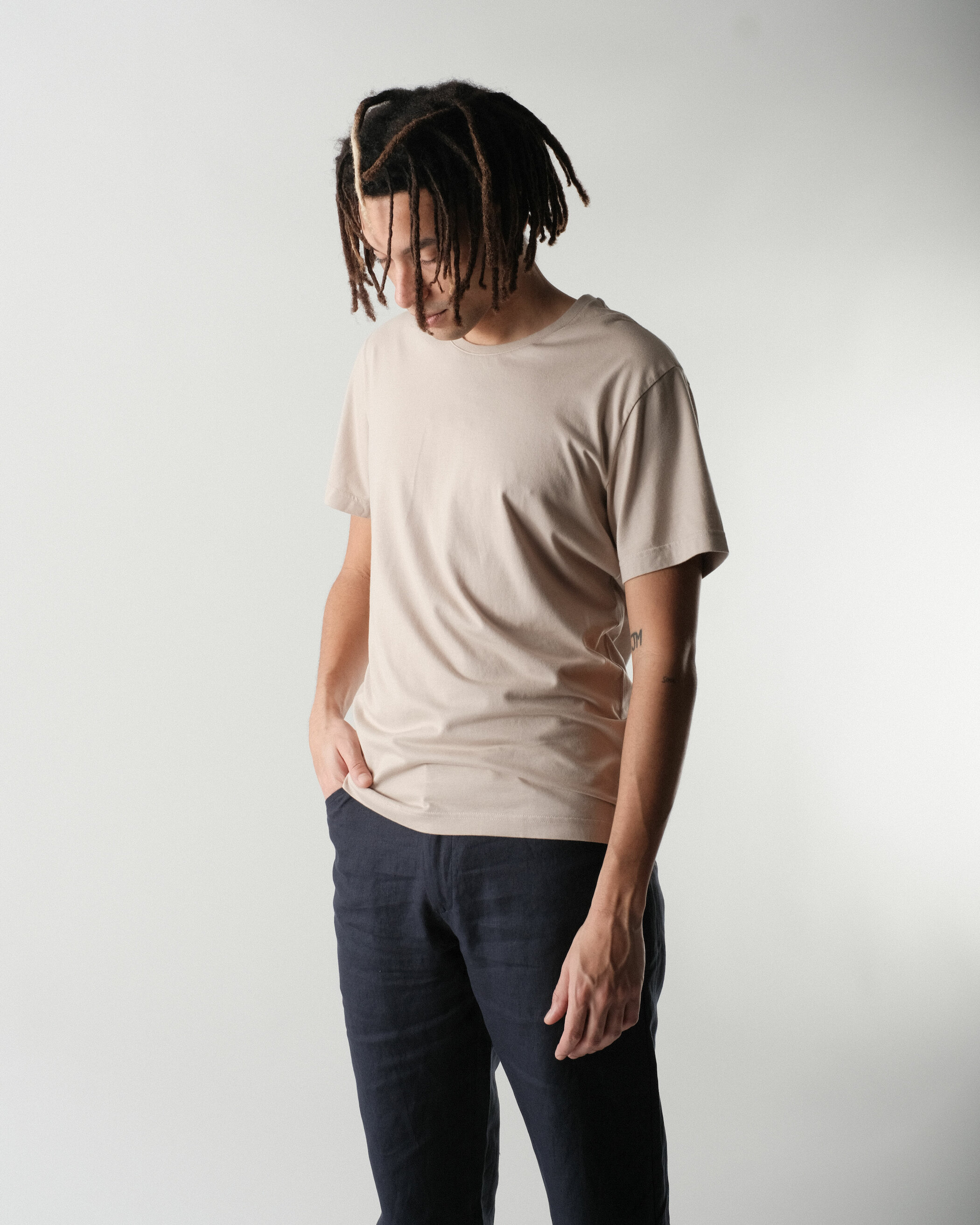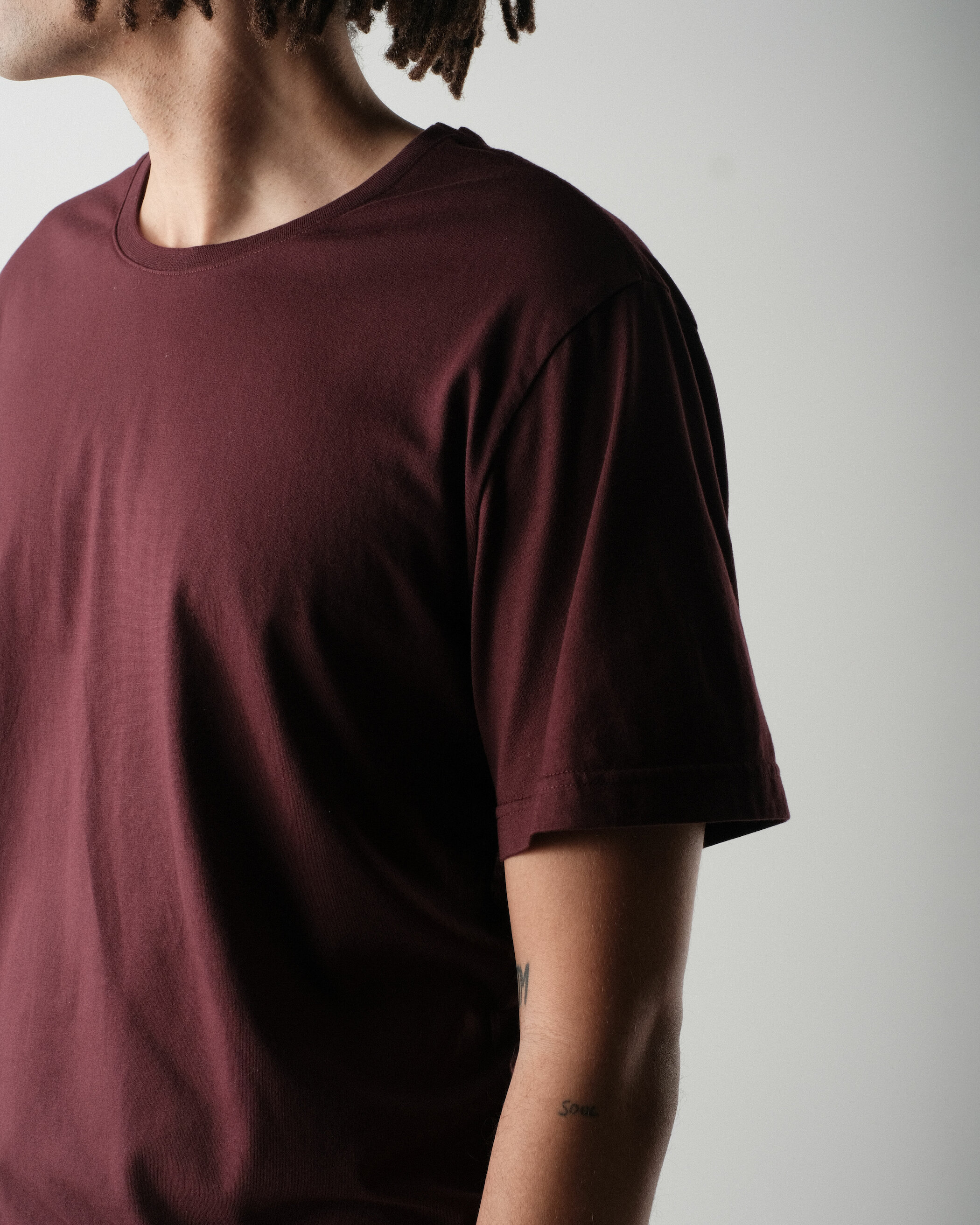50/50 Sweatpants
78 €
Info
- Soft
- Breathable
- Resource-saving
50% LENZING™ Modal from European beech wood
50% organic cotton
Handmade in Portugal
FIT
- Relaxed fit
Our heavyweight 50/50 fabrics shrink a bit after the first wash and are therefore cut a bit longer.
THE BEST JERSEY
Our jersey was developed in close cooperation with one of the world's leading spinning mills for innovative natural fiber yarns. The aim was to produce a resource-saving fabric for everyday use that is softer and more breathable than ordinary cotton jersey, but at the same time robust enough to accompany our customers for many years.
SOFT & BREATHABLE
LENZING™ Modal makes our jersey particularly soft and breathable. The smooth modal fiber is pleasantly soft on the skin and handles moisture better than cotton, which means you sweat less in everyday life and no odors can form.
RESOURCE-SAVING
LENZING™ Modal is made from 100% European beech wood and is much more resource-efficient than cotton. This is guaranteed by the sustainable procurement of raw materials, the responsible use of water, the minimization of fossil energy sources and a fully-fledged circular economy. A disadvantage of the smooth modal fiber is that it cannot be crosslinked as much, so it pills more and would therefore not be particularly durable as a pure modal textile.
DURABLE
50% organic cotton gives our jersey the necessary robustness to last for several years in everyday life. We spin an above-average thick yarn into a grippy 190g/m2 jersey. This special combination of materials makes our jersey the perfect companion all year round. Breathable and cooling in summer, pleasantly warm under a sweater in winter.
Images
Materials& Production
50% LENZING™ MODAL from Austria
LENZING™ Modal makes our jersey particularly soft and breathable. Modal has excellent moisture absorption capabilities, quickly conducts moisture away from the body and thus optimally regulates body temperature.
Our modal fiber is made from 100% certified European beech wood and is manufactured in Upper Austria. Thanks to the use of renewable energies and the recovery of chemicals in a closed-loop system, LENZING™ Modal is very resource-friendly.
50% ORGANIC COTTON from Tanzania
Our organic cotton is sown and harvested manually without the use of genetic engineering, chemical or synthetic pesticides. Instead, the farmers use beneficial organisms and natural pesticides, such as an extract from neem trees.
Due to favourable climate and soil properties, Tanzania is particularly suited for organic cotton cultivation. Artificial irrigation is largely unnecessary.
In order to maintain soil fertility and biodiversity and to prevent soil erosion, our organic cotton is grown in crop rotation. The farmers are paid fairly and are also protected in the event of a crop failure.
Handmade in Portugal
We manufacture our jersey products in collaboration with family businesses in northern Portugal. The production covers the entire material cycle from the fiber onwards.
Spinning, knitting and sewing facilities are within a radius of around 20 km and have been working together successfully for decades. The proximity of the locations saves long transport routes. In addition, we manufacture in small series to avoid overproduction and to guarantee variety for the craftspeople.
Labels Organic cotton from Portugal
The labels are made from 100% organic cotton and are woven and screen printed in Portugal. Because there are no synthetic fibers, they can fray a bit after washing. If that bothers you, we recommend simply removing the labels entirely.
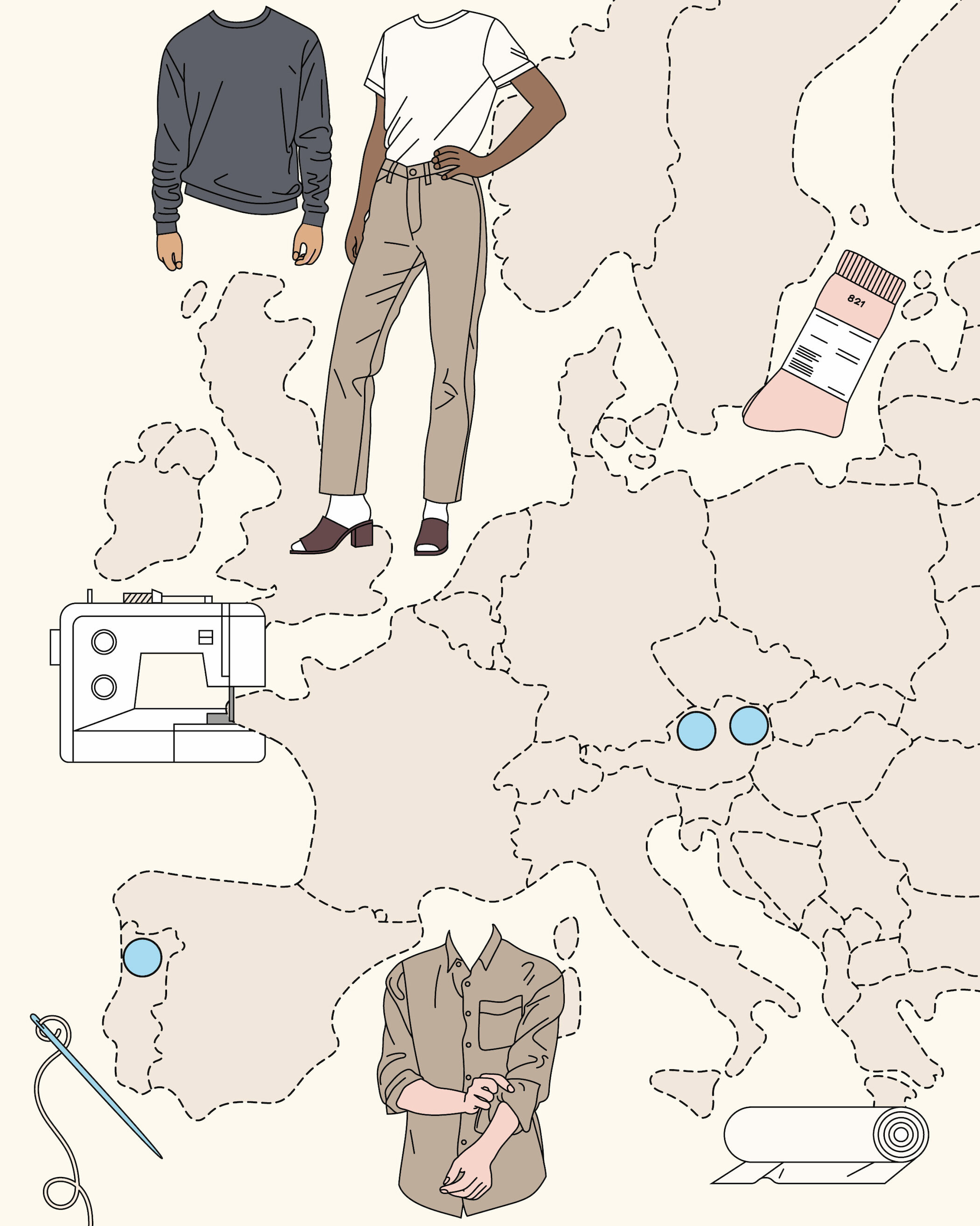
Cleaning& Care
Wash at 30°
Iron at low heat
Dry on low heat
Do not bleach
Our heavyweight 50/50 fabrics shrink a bit after the first wash and are therefore cut a bit longer.
SUSTAINABLE WASHING
Washing your laundry at 30°C is usually sufficient, protects the fibers and saves energy. For example, a wash at 30°C uses only about 2/3 of the energy of a wash at 40°C. Washing colder is not only good for the environment, it is also cheaper.
Detergents should be biodegradable. In Austria, for example, this is indicated by the eco-label. The dosage according to the packaging should be generally adhered to, whereby soft water (such as in Vienna) requires less detergent than hard water.
The use of fabric softener should be avoided altogether. Baking soda can be used instead of aggressive bleaching agents, and a little vinegar helps against unpleasant odours.
A large amount of energy can also be saved by air-drying your laundry instead of using a dryer.

